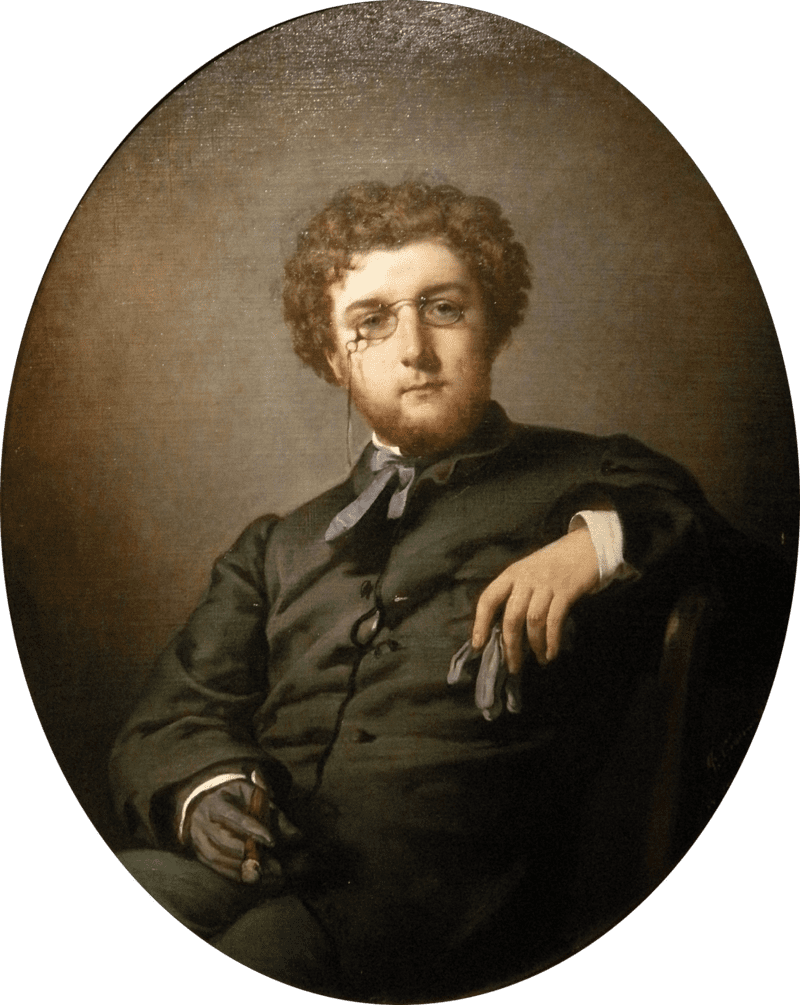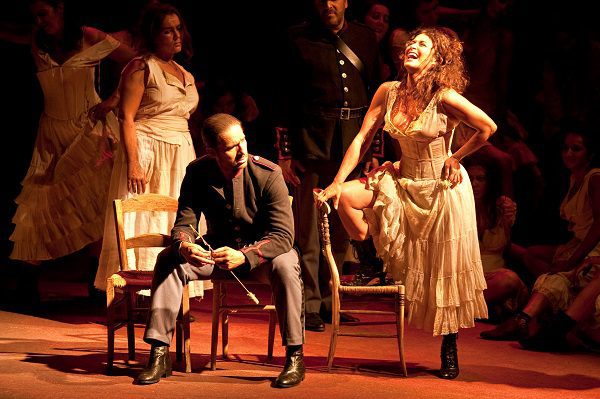Nicolas Robles
Badajoz, Spain

Georges Bizet (born Alexandre César Léopold Bizet in Paris on October 25, 1838) was a Romantic French composer. Because he made harsh demands on himself, he produced few finished works. Many were withheld by the composer himself and recovered posthumously, such as his Symphony in C Major (1855).
Born into a family of musicians, he entered the Paris Conservatory at the age of nine. Winning the prestigious Grand Prix de Rome for composition in 1857 allowed him to continue his training in Italy for three years. His opera Don Procopio dates from that period. On his return to France, he composed the operas The Pearl Fishers (1863) and The Beautiful Girl from Perth (1867), both of which were coldly received by the public. In June 1869, after a two-year courtship, Bizet married Geneviève Halévy, the daughter of his former teacher at the Paris Conservatoire.
The two works that contributed most to the composer’s fame were also not received well by his contemporaries: the stage music for the drama L´Arlesienne (1872) by Alphonse Daudet, and his masterpiece Carmen (1875), whose controversial premiere is said to have precipitated the composer’s death. Bizet was grief-stricken; according to his friend Gounod he was even thinking of suicide. He had always had great difficulty in achieving success, and this latest setback seemed to be a mortal blow to his career. At a soirée, he sat at the piano and played funeral marches by Schumann and Chopin. He retired to Bougival, fell ill after bathing in the cold waters of the river, and died on June 3, 1875. He was only thirty-six years old.1
His wife always claimed that he died from a heart attack brought on by grief over his failed compositions. This explanation is poetic, but probably not true. Throughout his life, Bizet suffered from bouts of tonsillitis that often progressed to “throat angina” or peritonsillar abscesses. An especially severe episode in 1858 was treated by putting twelve leeches in his throat. In March 1875, Bizet developed a severe case of throat inflammation. During the last months of his life, he suffered from recurrent bouts of throat pain and shortness of breath. An abscess at the base of his tongue formed, which caused him to nearly suffocate. Although the abscess healed, he lost all hearing in his left ear and suffered from joint pain. He improved after leaving Paris on May 28, but two days later suffered a high fever and acute, immobilizing pain. The next day, he had intense chest pain that at first subsided, but two days later, on June 3, 1875, he suffered another bout of severe chest pain and died.2

Bizet may have had rheumatic fever secondary to a severe throat and ear infection resulting in heart or pericardial involvement. An acute myocardial infarction from atherosclerosis in a young man would be unlikely. An abscess could have eroded into a blood vessel, but that would be less likely to present with chest pain.
Yet another possibility is takotsubo cardiomyopathy, also known as “broken-heart syndrome,” “apical ballooning,” or “stress cardiomyopathy.” First described in the 1990s in Japan, the condition was named for the dilated heart’s resemblance to a narrow-necked, bulging vessel traditionally used by Japanese fishermen to catch octopus. Its presentation is similar to a myocardial infarction, with chest pain and shortness of breath. There is transient myocardial damage whereby part of the affected part of the heart, usually the left ventricle, acquires a shape like an octopus trap. Takotsubo syndrome is suspected when there is a recent history of a strong and sudden stressful event in the absence of other cardiovascular risk factors.3 Perhaps Bizet´s wife was right, and the composer did die from a “broken heart.”
Although he was unsuccessful as a composer, more than 4,000 people went to his funeral at the Église de la Sainte-Trinité. An orchestra played Patrie, and the organist improvised a fantasy on themes from Carmen. He was laid to rest at Père Lachaise Cemetery in Paris.
References
- Figes O. The Europeans: Three Lives and the Making of a Cosmopolitan Culture. London: Penguin Books Ltd., 2019.
- Lewis JW Jr. What Killed the Great and Not So Great Composers? Bloomington, IN: Autorhouse, 2010.
- Ahmed T, Lodhi SH, Haigh PJ, Sorrell VL. “The many faces of takotsubo syndrome: A review.” Curr Probl Cardiol. Mar 2024;49(3):102421. doi: 10.1016/j.cpcardiol.2024.102421.
NICOLAS ROBERTO ROBLES is a full professor of Nephrology at the University of Extremadura (Badajoz) and member of the Academy of Medicine of Extremadura.

Leave a Reply